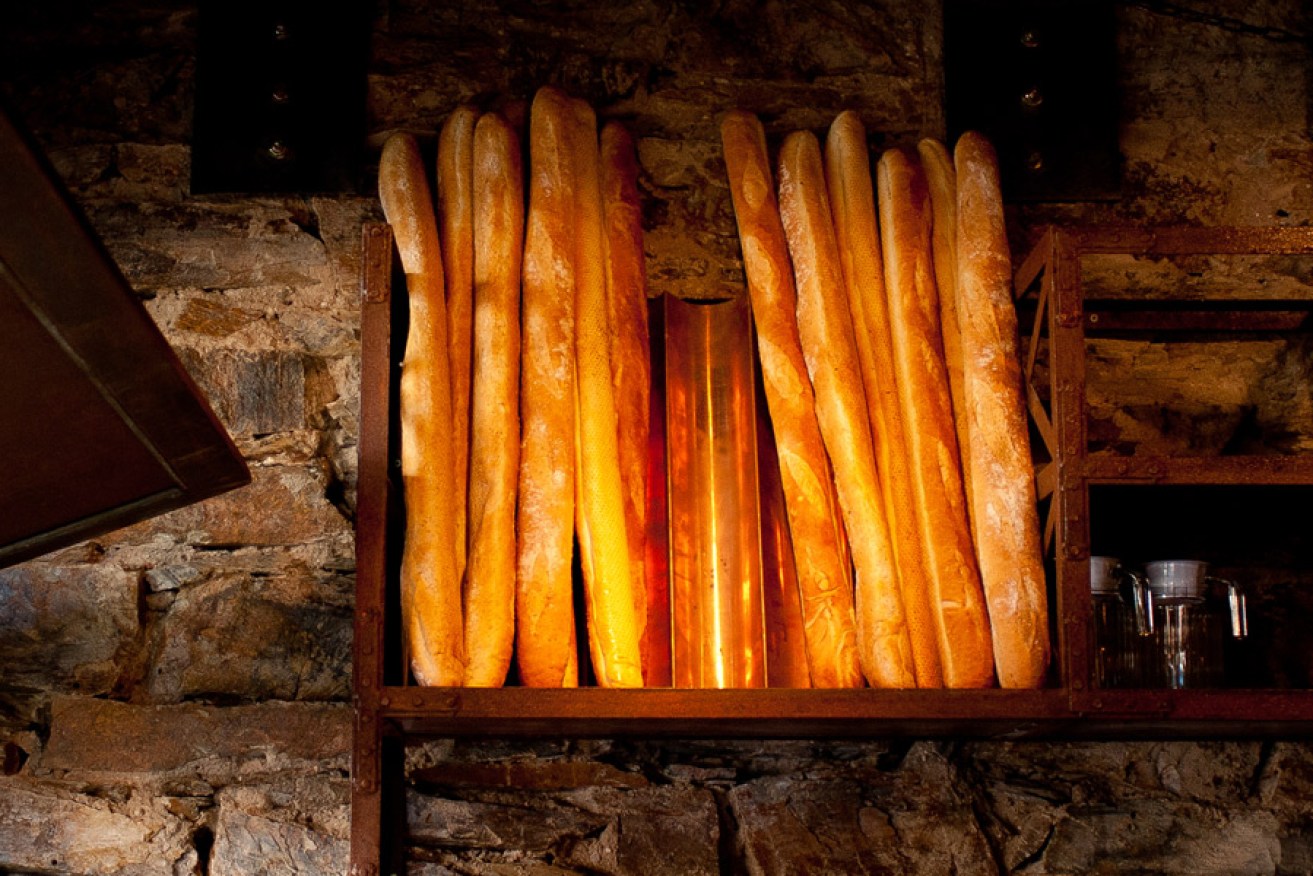The market domination of factory-produced packaged bread manufacturers is under threat from artisan bakers.
Australia’s largest food company, Goodman Fielder, last week reported it was likely to miss its earnings target by as much as 15 per cent, with net profit in its baking division – which is responsible for many well-known bread brands – being lower than expected.
In a recent report on the manufacture of artisanal bakery products, Ibisworld said that despite a per capita fall in bread consumption in Australia, artisan bread sales were on the rise.
Adelaide bakery Artisan Sourdough Bread reports increased sales of more than 200 per cent over the past decade and owner Voytek Rapaport says demand is rising.
“There is a high demand for my sourdough bread, even from the big supermarkets, however I can’t produce any more than I currently do,” he said. “I will soon need to expand my production operations.”
Artisan bread, as its name suggests, is bread that is hand-crafted as opposed to factory-produced.
Artisan bakers pay special attention to quality and processes. Rapaport explains that only four fundamental ingredients are incorporated in his bread – flour, sourdough starter (culture), water and salt – whereas factory-produced bread can have as many as 20.
Ibisworld market research shows that by December 2013, Bakers Delight had recorded 2.0 per cent annual growth, making it the largest among what the researchers categorise as Australia’s “artisan” bakers.
Comparatively, research shows that bread revenue declined by 1.7 per cent for Goodman Fielder, which owns the biggest market share for commercial breads. Nevertheless, the company still recorded $2 billion in annual bread sales revenue.
A Food SA industry report assessing bread production in Australia shows the key external drivers forcing down revenue for the likes of Goodman Fielder are health consciousness among consumers and the significant increase in the domestic price of wheat.
Artisan bakers are better able to absorb the higher wheat price because consumers are prepared to pay more for their loaves.
“The whole society is changing,” Rapaport says. “Consumers have had enough of big companies and are more aware of health. The whole reason is education; people know more about the bread … about the nutrition.”
The commercial bread manufacturers are on to the trend, marketing “fresh-baked”, “artisan” and “sourdough-like” breads within the baked goods sections of supermarkets.
But artisan bakers believe consumers have become savvy about quality and methods of preparation.
“There is no protection over the use of the words ‘sourdough’ and ‘artisan’ – bakers can call anything ‘sourdough’,” Rapaport says. “However, consumers are now more educated about the process and quality of an authentic sourdough bread.
“The process is slow. It takes 48 hours in total.”
Goodman Fielder and other large manufacturers might look at opportunities to compete with artisan bakers, but the artisan process cannot be authentically carried out when mass-producing products.
Food SA CEO Catherine Barnett says artisan bakers have a key advantage over the factory producers.
“The value proposition of artisanal bread is something that small and medium-size bakery companies can genuinely portray, because of their use of specialty flours produced locally,” she told InDaily.
“It is hard for large manufacturers and retailers to be both mass-produced and artisanal in consumers’ eyes.”
Heightened health awareness has also sparked a surge in diets that discourage the incorporation of artificial additives, sugar, gluten, grains and dry yeast.
“There is certainly a consumer trend towards gluten-free, as demonstrated by the significant growth experienced by some of our bakery members,” Barnett said.
“Other strong trends include the use of ‘ancient’ grains such as chia, quinoa and spelt.”
The newly popular Paleo diet, for example, discourages the consumption of grains and is based on the premise that human genetics have not altered since the end of the Paleolithic era.
A baker’s take on “Paleo” bread is typically grain-free, gluten-free, yeast-free, dairy-free and soy-free – an item you would be hard pressed to find in a supermarket.
Excluding health, new points of sale have also increased the popularity of artisan bread.
Stuart Phillips, managing director of Adelaide’s Riviera Bakery, says sales of artisan breads have been assisted by a growth in alternate retail outlets such as farmers’ markets.
Barnett says Ibisworld predicts that the revenue from artisanal bakery products will reach $3.8 billion in Australia by the end of 2014”.
“In South Australia, our artisanal bakery industry stands to earn about 8% of that revenue,” she said.
InDaily sought comment from Coles and Woolworths supermarkets, but no response was received by deadline.





